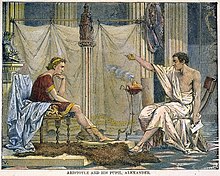342 BC
Appearance
(Redirected from 342 BCE)
This article needs additional citations for verification. (February 2024) |
| Millennium: | 1st millennium BC |
|---|---|
| Centuries: | |
| Decades: | |
| Years: |
| 342 BC by topic |
| Politics |
|---|
| Categories |
| Gregorian calendar | 342 BC CCCXLII BC |
| Ab urbe condita | 412 |
| Ancient Egypt era | XXXI dynasty, 2 |
| - Pharaoh | Artaxerxes III of Persia, 2 |
| Ancient Greek era | 109th Olympiad, year 3 |
| Assyrian calendar | 4409 |
| Balinese saka calendar | N/A |
| Bengali calendar | −935 – −934 |
| Berber calendar | 609 |
| Buddhist calendar | 203 |
| Burmese calendar | −979 |
| Byzantine calendar | 5167–5168 |
| Chinese calendar | 戊寅年 (Earth Tiger) 2356 or 2149 — to — 己卯年 (Earth Rabbit) 2357 or 2150 |
| Coptic calendar | −625 – −624 |
| Discordian calendar | 825 |
| Ethiopian calendar | −349 – −348 |
| Hebrew calendar | 3419–3420 |
| Hindu calendars | |
| - Vikram Samvat | −285 – −284 |
| - Shaka Samvat | N/A |
| - Kali Yuga | 2759–2760 |
| Holocene calendar | 9659 |
| Iranian calendar | 963 BP – 962 BP |
| Islamic calendar | 993 BH – 992 BH |
| Javanese calendar | N/A |
| Julian calendar | N/A |
| Korean calendar | 1992 |
| Minguo calendar | 2253 before ROC 民前2253年 |
| Nanakshahi calendar | −1809 |
| Thai solar calendar | 201–202 |
| Tibetan calendar | 阳土虎年 (male Earth-Tiger) −215 or −596 or −1368 — to — 阴土兔年 (female Earth-Rabbit) −214 or −595 or −1367 |

Year 342 BC was a year of the pre-Julian Roman calendar. At the time it was known as the Year of the Consulship of Ahala and Rutilus (or, less frequently, year 412 Ab urbe condita). The denomination 342 BC for this year has been used since the early medieval period, when the Anno Domini calendar era became the prevalent method in Europe for naming years.
Events
[edit]By place
[edit]Macedonia
[edit]- The Greek philosopher, Aristotle, is invited by Philip II to his capital at Pella to tutor his son, Alexander. As the leading intellectual figure in Greece, Aristotle is commissioned to prepare Alexander for his future role as a military leader. (or 343 BC)[1]
- Philip begins a series of campaigns in Thrace with the aim of annexing it to be a province of Macedonia. When the Macedonian army approaches Thracian Chersonese (the Gallipoli Peninsula), an Athenian general named Diopeithes ravages this district of Thrace, thus inciting Philip's rage for operating too near one of his towns in the Chersonese. Philip demands his recall. In response, the Athenian Assembly is convened. Demosthenes convinces the Athenians not to recall Diopeithes.
Sicily
[edit]- The Corinthian general Timoleon spreads his rule over Sicily, removing a number of other tyrants and preparing Sicily for another threatened Carthaginian invasion.
Roman Republic
[edit]- The Battle of Mount Gaurus is fought between the Romans and the Samnites. The battle is a success for the Romans, who, it is said, are led by Marcus Valerius Corvus. Fought at the foot of Mount Gaurus, near Cumae, it is the most notable engagement of the First Samnite War.
China
[edit]- In the course of the Warring States period, the army of the state of Qi defeats the army of the state of Wei in the Battle of Maling. This battle involves the military strategy of the general Sun Bin (descendant of Sun Tzu), and is the first battle in recorded history to give a reliable account of the handheld crossbow with trigger mechanism.
Births
[edit]Deaths
[edit]References
[edit]- ^ Amadio, Anselm H.; Kenney, Anthony J.P. (January 5, 2024). "Aristotle". Encyclopædia Britannica. Retrieved February 24, 2024.
